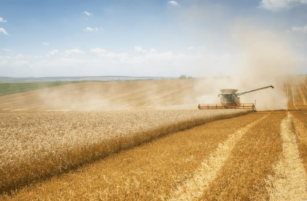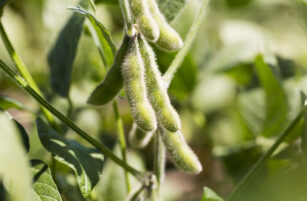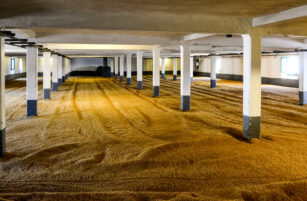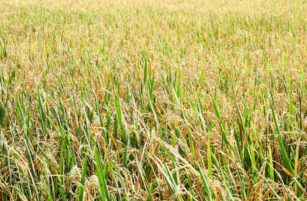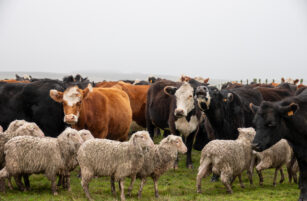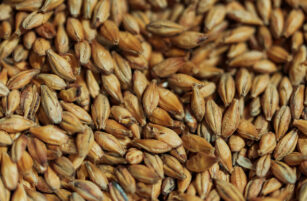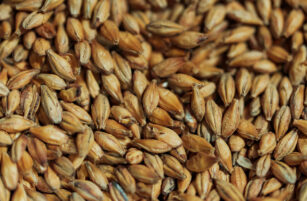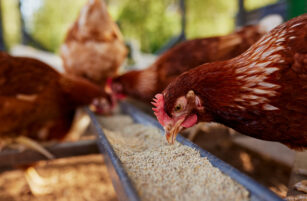Insight Focus
- Ukraine, Turkey, Russia and the UN reached an agreement to allow agricultural exports from Ukrainian sea ports.
- But there is a risk that grains rally if the deal is not signed in the coming weeks.
- Very hot dry weather in Europe is still a concern for corn and wheat crops.
Nixal’s Forecast
No changes to our price forecast for 21/22 (Sep/Oct) Chicago Corn to be around 6,6 USD/bu in average for the crop.
The average price since the new crop started is running at 6,6 USD/bu.
Nixal’s Market Commentary
The July WASDE and Ukraine’s potential export corridor weighted more than dry weather, and grains had a negative week. Ukraine, Turkey, Russia and the UN reached an agreement to allow agricultural exports from Ukrainian sea ports.
We had a strong start of the week on the back of hot and dry weather in Europe and then a big correction after the July WASDE published higher Corn and Wheat stocks in the US and globally. Just when heat was about to come back to the top list of worries, Ukraine announced an agreement to safely export grains from sea ports. Corn had weekly losses close to 5% in Chicago while Wheat losses were closer to 10% also in Europe.
In the Corn side, the July WASDE increased old crop ending stocks by 25 mill bu all coming from less feed and residual demand. New crop stocks were 70 mill bu higher with higher initial stocks (old crop) and 45 mill bu of higher production as acreage was revised higher. But the reality is that the math appears to be wrong by 8,7 mill acres as multiplying harvested acres by yield results in 14,496 bill bu vs. 14,505 that appeared in the report.
Globally, Corn ending stocks were 2,5 mill ton higher with higher US production offset by lower Russian production.
US Corn condition was unchanged at 64% good or excellent vs. 65% last year. French Corn condition worsened one point and is now 83% good or excellent vs. 77% last year. In Brazil, safrinha Corn is 40% harvested vs. 21% last year.
In the Wheat front, the July WASDE increased US ending stocks for 22/23 by 12 mill bu with the bulk of it coming from 44 mill bu of higher production due to higher yield of 47,3 bpa vs. 46,9. They published less imports and more exports. Globally the July WASDE increased ending stocks by a marginal 670k ton. They reduced Argentinian production by 500k ton, increased Canadian production by 1 mill ton, EU down by 2 mill ton, Russia up by just 500k ton and Ukraine down by 2 mill ton. Russian production was the big expectation as local analysts and the European commission are forecasting around 89 mill ton when the WASDE stayed almost unchanged at 81,5 mill ton.
The French agricultural ministry lowered their Wheat production forecast by 7,2% yoy to 32,9 mill ton due to lower area and yield.
US Winter Wheat is now 63% harvested vs. 54% last year. French Wheat condition improved one point to 64% good to excellent vs. 76% last year. Harvesting is 50% complete.
In the Black Sea region, logistics should see some relief as transshipment from barge to vessel in the Bystre Canal has been restored connecting the Danube with the Black Sea. By Wednesday the Ukrainian ministry of infrastructure had already reported 16 vessels had passed the Bystre Canal. On top of the mentioned improvement Ukraine, Turkey, Russia and the UN agreed to increase exports out of Ukrainian sea ports. More details will be discussed and agreed this week when the agreement is expected to be signed.
In the weather front, we had very hot and dry weather across Europe and the US last week, and similar weather is expected this week. Also China is expected to have hot weather. Brazil should see some rains in the south.
The market will be paying a lot of attention to the confirmation of the safe corridor for exports out of Ukraine. This should be the major downside risk as we have been saying for quite some time now. But grains could rally if words don’t turn to be facts and there is real proof grains will start to flow out of Ukraine. The potential upside risk should come from weather as two weeks of extremely hot and dry weather should result in crop condition worsening.


